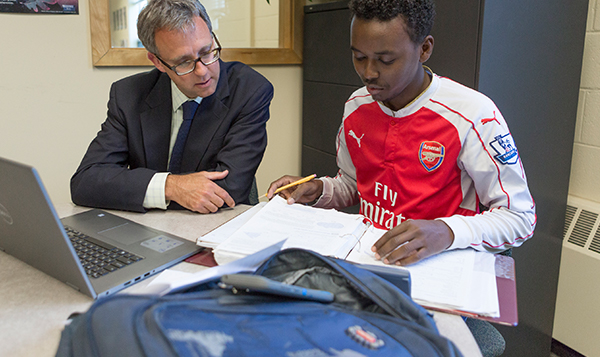60% of Full-Time Enrollees Completed College
Family Income Strongly Correlated with College Completion
The Finance Authority of Maine (FAME) has released the results of its Maine State Grant College Completion Study, which was undertaken as a result of a grant it received from the New England Board of Higher Education (NEBHE). The report measured a variety of student criteria, including college completion rates, financial need, institutional enrollment, and ages of grantees. The study was authored by Lisa Plimpton of Plimpton Research and is available to view and/or download
here.
Administered by FAME, the Maine State Grant Program is the state’s need-based undergraduate grant program. It is funded largely through state appropriations with additional financial support from the NextGen College Investing Plan®, Maine’s Section 529 College Savings Plan. The grant is awarded annually to approximately 16,000 Maine students. Students apply using the Free Application for Federal Student Aid (FAFSA). Award levels for academic year 2015-16 are $1,500 for full-time study at Maine institutions (public and private) and $750 for part-time study.
The completion report is based on a study of financial aid application data provided by FAME and linked with college enrollment and degree data from the National Student Clearinghouse. The study tracked student outcomes of approximately 31,000 grant recipients who were enrolled in college between January 2005 and September 2014. The study found that Maine State Grant recipients had higher rates of degree completion than did their peers in Maine and in the nation.
“This study demonstrates the importance of the Maine State Grant in helping to make higher education affordable and accessible for many Mainers,” stated Bruce Wagner, FAME’s Chief Executive Officer. “The grant is an essential piece of the financial aid package for many students and families, and we are pleased to learn of the strong completion rates for grant recipients. There is an ongoing need for increased state funding for this vital grant.”
Key findings from the study included:
- College completion among students who initially enrolled part-time averaged 47%, compared with 60% of full-time enrollees.
- 44% of students who initially enrolled in two-year institutions completed a college degree, compared with 61% of enrollees in four-year colleges and universities.
- Students who receive the Maine State Grant demonstrate strong financial need with low family incomes and few, if any, family resources available to pay for college. Most grantees had Expected Family Contributions (EFCs) of less than $1,000 (62%) and annual family incomes below $20,000 (56%).
- Economic disadvantage is associated with lower rates of college enrollment and college completion. 43% of students with $0 EFCs for college completed a degree, compared with 72% of students with EFCs of $5,000 or higher.
- Nontraditional or adult learners comprised a surprisingly high percentage of grantees, 44%
- 82% of Maine State Grantees initially enrolled at public colleges and universities, and 70% first enrolled at four-year institutions. About three in five students (59%) enrolled at only one higher education institution, and two in five (41%) enrolled in two or more different institutions during the study period.
- Most students in the study (56%) started college between the ages of 18 and 22, while a strong minority of 44% was over the age of 23 for their first enrollment term during the study period.
“FAME is pleased to learn of the higher than expected completion rates for our grantees, especially considering the financial challenges they face,” stated Wagner. “It is clear to us that if we want to promote college completion and reduce student debt, greater state support for the Maine State Grant is essential.”
The report makes several recommendations for consideration by Maine policymakers and higher education institutions:
- Higher grant awards, financial aid counseling, and other support programs could be targeted for students with the lowest college completion rates.
- A guarantee of continued Maine State Grant support—contingent on staying enrolled rather than on continuing to meet financial aid application deadlines and EFC cutoffs—might help to improve completion rates for Maine college students with the greatest financial need.
- College completion incentive grants targeted at adults who are already part-way to a college degree might help more students finish college, and also bring Maine closer to its postsecondary education attainment goals.
“We look forward to discussing the report’s findings and recommendations with policymakers and other partners as we explore how best to move forward to help ensure a bright economic future for the state with a well-trained workforce,” added Wagner.
FAME is a quasi-independent state agency that provides innovative financial solutions to help Maine citizens pursue businesses and educational opportunities. FAME helps to lead the creation of quality jobs for Maine citizens by working at the nexus between economic and workforce development.



